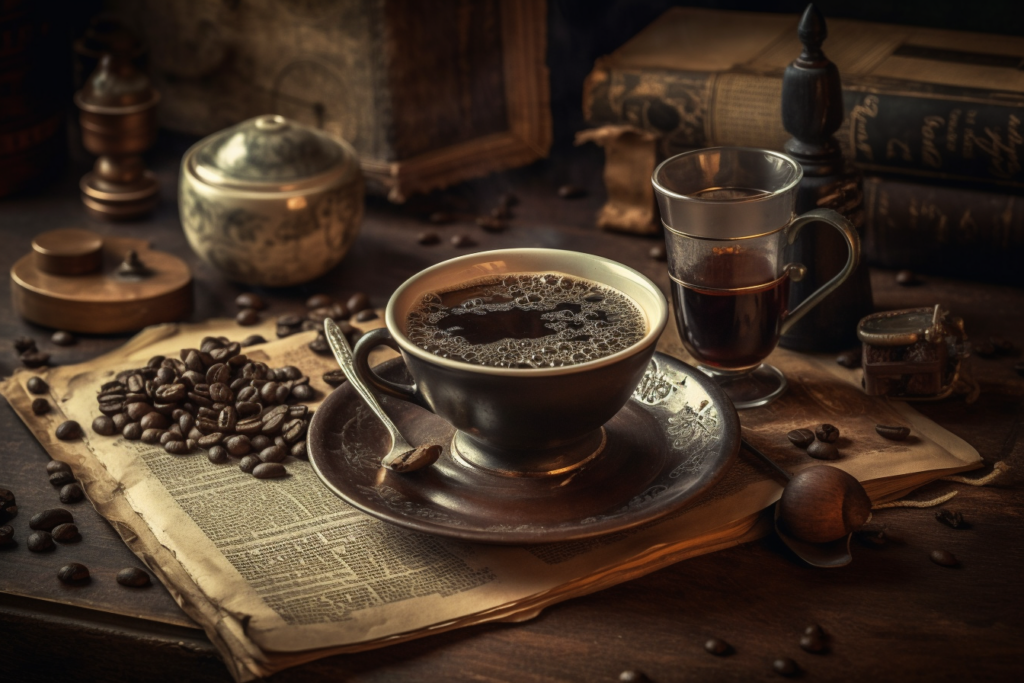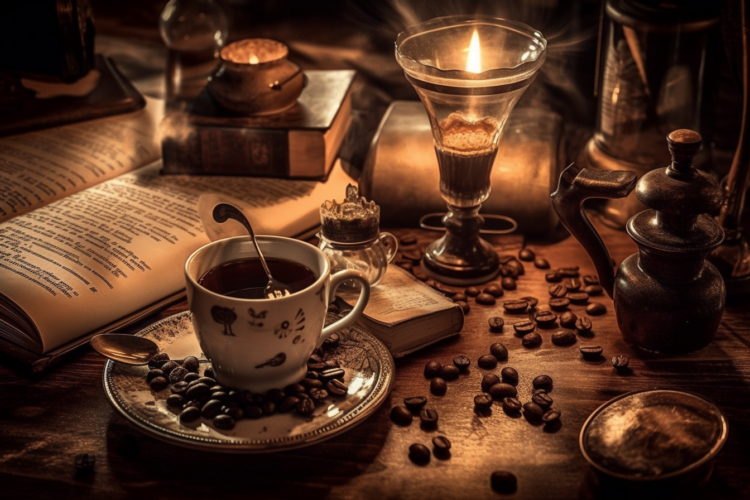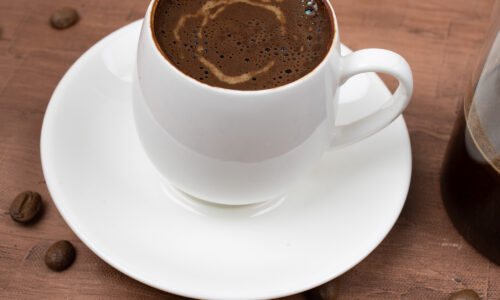Delve into the captivating world of famous coffee drinkers throughout history. From composers to presidents, discover how these influential figures enjoyed their favorite brew and how their love for coffee shaped their lives and accomplishments.
Famous Coffee Drinkers in History
Johann Sebastian Bach
Johann Sebastian Bach, a renowned composer and musician, was a passionate coffee enthusiast. His love for the beverage inspired him to compose the humorous “Coffee Cantata,” which portrays coffee as a beloved daily ritual.
Voltaire
Voltaire, the influential French philosopher and writer, was known for his prodigious coffee consumption. It is said that he drank up to 50 cups a day, which may have fueled his sharp wit and prolific writing output.
These famous coffee drinkers throughout history not only left a lasting impact on the world but also shared a profound love for coffee. Their stories remind us of the rich history and culture surrounding this beloved beverage, enjoyed by millions around the globe.
Ludwig van Beethoven
Ludwig van Beethoven, the famous composer, was particular about his coffee preparation. He insisted on using exactly 60 coffee beans per cup, believing that this precise amount resulted in the perfect taste and intensity.

Theodore Roosevelt
Theodore Roosevelt, the 26th President of the United States, was a self-proclaimed coffee addict. He reportedly drank a gallon of coffee each day, often sweetened with copious amounts of sugar. His love for coffee even led to the coining of the term “Teddy’s Blend” in his honor.
Ernest Hemingway
Ernest Hemingway, the celebrated author and journalist, was known for his coffee drinking habits. He often enjoyed a cup alongside his early morning writing sessions, believing it helped awaken his creativity and focus.
Napoleon Bonaparte
Napoleon Bonaparte, the French military leader and emperor, was known for his strategic genius and love for coffee. He is famously quoted as saying, “I would rather suffer with coffee than be senseless,” highlighting the importance of the beverage in his daily life.
Benjamin Franklin
Benjamin Franklin, one of the United States’ Founding Fathers and a polymath, was an avid coffee drinker. In his time spent in London and Paris, Franklin frequented coffee houses, which served as vital centers for socializing, discussing ideas, and sharing news.
Gertrude Stein
Gertrude Stein, the influential American writer and art collector, was known for her love of coffee. Stein and her partner, Alice B. Toklas, would often serve coffee to the literary and artistic greats, such as Ernest Hemingway and Pablo Picasso, who visited their Parisian salon.
Thomas Jefferson
Thomas Jefferson, the third President of the United States and author of the Declaration of Independence, was a self-proclaimed coffee connoisseur. Jefferson considered coffee “the favorite drink of the civilized world” and imported beans directly from Europe to ensure a fresh supply.
Sigmund Freud
Sigmund Freud, the father of psychoanalysis, was a dedicated coffee drinker. Freud believed that coffee stimulated his mind and allowed him to dive deeper into his patients’ thoughts, ultimately shaping his groundbreaking theories on the human psyche.
Sir Isaac Newton
Sir Isaac Newton, the renowned physicist and mathematician, was known to frequent coffee houses during his time at Cambridge University. These establishments served as hubs for intellectual discussions, where Newton and his contemporaries could exchange ideas over cups of coffee.
Lorraine Hansberry
Lorraine Hansberry, the groundbreaking African American playwright, was known for her love of coffee. Hansberry would often work late into the night, using coffee to fuel her creativity and give her the energy needed to write her groundbreaking plays, such as “A Raisin in the Sun.”
Gustave Flaubert
Gustave Flaubert, the French novelist best known for “Madame Bovary,” was a coffee enthusiast. Flaubert would often drink copious amounts of coffee while writing, using the caffeine to help him focus and maintain the discipline required for his detailed and precise prose.
James Joyce
James Joyce, the Irish novelist and poet, was a devoted coffee drinker. He would frequent the cafes of Dublin, Trieste, and Paris, using the bustling atmosphere and the stimulation of coffee to inspire his unique and innovative writing style.
H.P. Lovecraft
H.P. Lovecraft, the American writer known for his contributions to the horror genre, was an ardent coffee lover. Lovecraft would often use the stimulating effects of coffee to fuel his late-night writing sessions, crafting the chilling stories that would make him a literary legend.
These ten famous coffee drinkers throughout history exemplify the diversity and impact of coffee on various aspects of life. From stimulating creativity to fueling political discussions, the stories of these influential figures demonstrate the universal appeal and importance of coffee in shaping the world we know today.

The Coffee Culture of the 1600s-1700s: A Look into the Past
The 1600s and 1700s marked a period of significant growth and transformation for coffee culture. As the popularity of the beverage spread across continents, coffee houses became centers of social activity, intellectual discussions, and cultural exchange. Let’s journey back in time to explore the vibrant coffee culture of this era.
In the 1600s, coffee houses emerged in Europe, particularly in England, France, and Italy. These establishments played a vital role in society, providing a space for people to gather, discuss ideas, and conduct business. Notable coffee houses of this period include London’s Pasqua Rosée’s and Paris’ Le Procope.
Coffee houses of the 1600s and 1700s were known as “penny universities,” where intellectuals, writers, and philosophers would gather to exchange ideas and engage in debates. The stimulating effects of coffee facilitated these discussions, making coffee houses the breeding ground for new ideas and intellectual advancements.
The coffee culture of the 1600s and 1700s had a significant impact on shaping sociopolitical movements. As people gathered in coffee houses to discuss the issues of the day, these venues became catalysts for political activism, playing a crucial role in events such as the French Revolution and the American Revolution.
As coffee gained popularity during this period, it also became a prominent theme in art and literature. Writers, such as Jonathan Swift and Alexander Pope, referenced coffee houses in their works, while artists, like Jean-Baptiste Vanmour, depicted scenes from coffee houses in their paintings.



